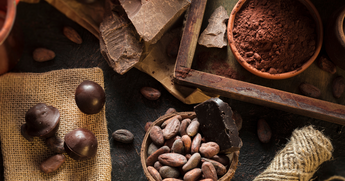Few people know that one of their most beloved hot beverages starts as a green, earth-smelling bean.
Coffee beans are originally tasteless and soft when first harvested but thrust into their full potential when going through the delicate roasting process. Roasting these small beans under scolding temperatures causes them to lose moisture which unlocks that heavenly coffee aroma. Another factor that plays an intrinsic role in the taste of your coffee, besides the roasting technique, is the origin of the coffee beans. Coffee beans are harvested globally from places like Ethiopia, Kenya, Indonesia, Columbia, Costa Rica and Mexico. All of these places have varying climates, neighbouring plants, and soil which tend to leave a unique aromatic imprint on the coffee beans themselves.
Naturally processed Ethiopian coffee beans are known for an accompanying blueberry aroma whilst Columbian beans have chocolate, vanilla and even apple flavours that perfectly balance the bittersweet aftertaste of a darker roast. The colour of the roasted beans will often tell you the amount of caffeine and bitterness that you can expect with each brew. There are four colour groups that make out the four common coffee roast profiles and each one is known for its distinctive body and taste. These profiles are categorized as light roasts, medium roasts, medium-dark roasts and dark roasts.
Light roasts are known for their light-brown colour. The beans themselves have no oil on the surface, they have a strong acidic taste and they also have the highest level of caffeine. The medium roasts are a bit darker in colour, they embody a more balanced aroma and also do not have any oil on the bean surfaces. The medium-dark roasts contain a fuller flavour and they have small amounts of oil on the surface of each bean. The dark roasts are the most bitter of all the roast profiles and they also contain the most oil on the bean surfaces. The beans are nearly black in colour and the caffeine levels of each brew are significantly diminished.
When it comes to these four roasts, everyone has a unique preference but when trying to pair a roast with a certain dish it is always best to match the intensities of the varying flavour profiles. This means that a subtle light roast could be the perfect accomplice to a soft cheese. A full-bodied Columbian coffee blend would complement a decadent caramel cheesecake. You can also experiment with contrasting different undertones to compliment the acidity or bitterness of your chosen coffee roast. Light, medium or dark, each roast boasts unique flavours and aromas ranging from earthy to floral and even slightly spicy. Be sure to maximise the unique aroma of your chosen roast by ensuring you have a clean coffee machine and by pairing your coffee with food choices that enhance every sip.















